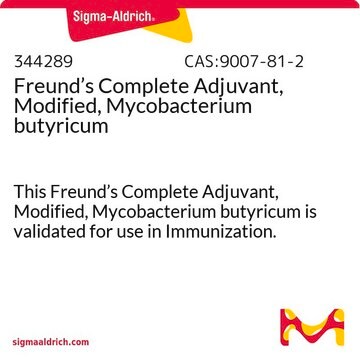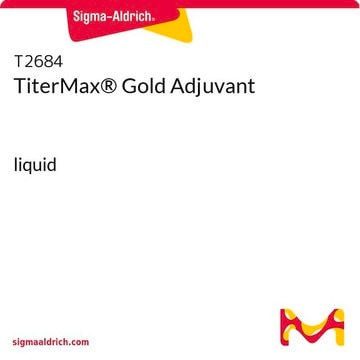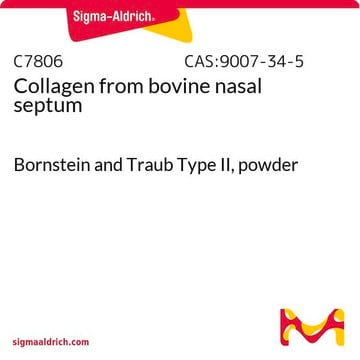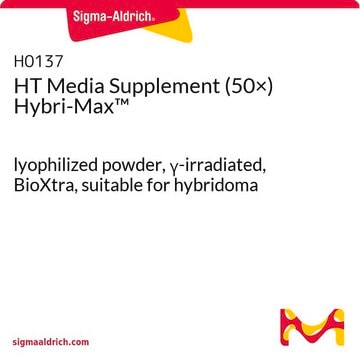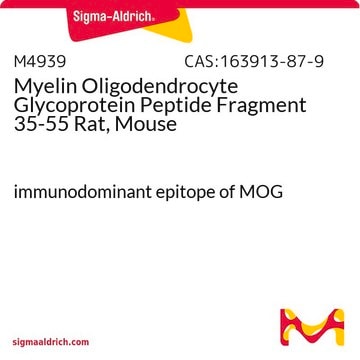F5506
Freund′s Adjuvant, Incomplete
liquid
Synonym(s):
FICA
About This Item
Recommended Products
Application
Other Notes
Disclaimer
related product
Storage Class Code
10 - Combustible liquids
WGK
WGK 3
Flash Point(F)
Not applicable
Flash Point(C)
Not applicable
Certificates of Analysis (COA)
Search for Certificates of Analysis (COA) by entering the products Lot/Batch Number. Lot and Batch Numbers can be found on a product’s label following the words ‘Lot’ or ‘Batch’.
Already Own This Product?
Find documentation for the products that you have recently purchased in the Document Library.
Customers Also Viewed
Articles
Antibodies combine with specific antigens to generate an exclusive antibody-antigen complex. Learn about the nature of this bond and its use as a molecular tag for research.
Antibodies combine with specific antigens to generate an exclusive antibody-antigen complex. Learn about the nature of this bond and its use as a molecular tag for research.
Antibodies combine with specific antigens to generate an exclusive antibody-antigen complex. Learn about the nature of this bond and its use as a molecular tag for research.
Antibodies combine with specific antigens to generate an exclusive antibody-antigen complex. Learn about the nature of this bond and its use as a molecular tag for research.
Related Content
Access high-quality reagents for antibody workflows, including adjuvants, blocking reagents, conjugation kits, and more.
Access high-quality reagents for antibody workflows, including adjuvants, blocking reagents, conjugation kits, and more.
Access high-quality reagents for antibody workflows, including adjuvants, blocking reagents, conjugation kits, and more.
Access high-quality reagents for antibody workflows, including adjuvants, blocking reagents, conjugation kits, and more.
Our team of scientists has experience in all areas of research including Life Science, Material Science, Chemical Synthesis, Chromatography, Analytical and many others.
Contact Technical Service
